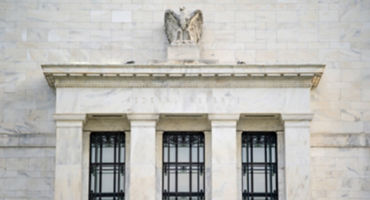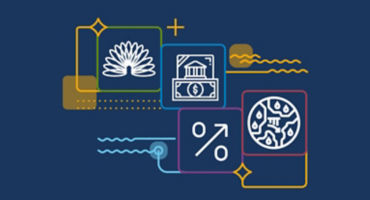- Investment Analyst
- London
Skip to main content
- Insights
- Capabilities
- Funds
- Sustainability
- About Us
- My Account
The views expressed are those of the author at the time of writing. Other teams may hold different views and make different investment decisions. The value of your investment may become worth more or less than at the time of original investment. While any third-party data used is considered reliable, its accuracy is not guaranteed. For professional, institutional, or accredited investors only.
The past few years have seen remarkable growth in sustainable investing, including impact investing. Here, members of Wellington’s fixed income impact team share their perspectives on the evolution of this dynamic market and their approach to issuer engagement.
Will Prentis, Investment Analyst
Paul Skinner, Investment Director
Recent events highlight the mounting challenges facing society. From the pandemic, which underscored the widespread need for improved health care and internet access; to the ambitious goals set at the UN Climate Change Conference (COP26); to Russia’s tragic invasion of Ukraine, which has led to a cascade of social and environmental problems and a sharpened focus on cybersecurity and renewable energy.
As the world’s large challenges mount, investors are seeking ways to make a difference, increasingly turning to public markets as a means of using their capital to “do good”. With impact investing, investors can participate in a market that offers the potential for long-term growth, competitive investment returns, and opportunities to create positive real-world change.
In public fixed income markets, our impact universe includes traditional issuers addressing critical needs through their core products and services and a subset of “sustainable debt” issuance, including green bonds, social bonds, sustainable bonds, and sustainability-linked bonds. This market is expanding quickly, as is the flow of capital targeting solutions for these needs.
At Wellington, we take a non-concessionary approach, aiming to maximise impact and deliver competitive investment returns for our clients. In our view, selectively investing in what we believe are strong companies that stand out as addressing impact themes offers compelling return opportunities. Increasingly, market participants are recognising issuers that are developing differentiated solutions for social and environmental needs. We expect demand for these issuers to increase and for impact issuers to benefit from structural tailwinds, given their focus on essential products and services that address some of the world’s most pressing issues.
We believe public fixed income markets offer many opportunities for investors to generate widespread impact. Working with an experienced investment manager with an established impact platform, deep research capabilities, and an extensive fixed income background may be a sensible solution for investors looking to harness today’s impact momentum and generate positive real-world change through their investments.
Campe Goodman, CFA
The fixed income impact opportunity set is evolving rapidly as governments, issuers, and investors acknowledge the need to actively support a sustainable future. We continue to identify compelling opportunities across a range of issuer and issue types in both developed and emerging markets. While the majority of issuance meeting our impact criteria has, thus far, come from developed markets, we are seeing substantial growth in opportunities within emerging markets, where unmet needs are generally more widespread than in developed markets.
Across markets, we believe impact investments can play a key role in closing the funding gap for the United Nations Sustainable Development Goals, facilitating the low-carbon transition, and building resilience to the physical risks of climate change. As governments and consumers, particularly in emerging markets, intensify their focus on quality of life and sustainable development, we expect more companies to offer solutions that address unmet needs and for sustainable debt and traditional issuance from impact issuers to see accelerating demand growth.
Figure 1 illustrates the recent growth in sustainable debt issuance in emerging markets. While green bond issuance remains strong, new growth drivers have expanded the opportunity set. In the sustainable debt space, sovereigns and high-yield corporate issuers are entering the market via social, sustainable and sustainability-linked bonds.
The fixed income impact universe has improved in quality as well as quantity. Better standards and regulation and the participation of committed market participants have contributed to that evolution. Large institutional investors like Wellington can engage with issuers and provide guidance on how to structure robust bond deals. We also believe in establishing a robust framework to assess the suitability of labelled issuance for our portfolios and highlight how we can use our engagement edge to combat greenwashing.
The means through which we can generate positive impact have never been so diverse. Looking ahead, we are excited by the many opportunities that enable us to supply capital for real-world change through fixed income impact investments.
Virginie Pelle, Fixed Income Credit Analyst
As fixed income impact investors, we believe it is crucial to engage with the issuers held in our portfolios. Engagement enables us to identify and assess investment risks and opportunities while also helping to ensure that issuers generate meaningful impact year after year. As Figure 2 shows, in our engagements, we have four key priorities.
With KPI achievement, we aim to identify issuers performing below expectations relative to their selected impact KPIs, understand the root causes of that underperformance and discover which issuers would benefit from engagement.
Our goal with underperformers is to understand the challenges they face and support initiatives to drive change. Engagement is especially important as we seek to build long-term relationships and be good stewards on behalf of our clients. The purpose of our engagements is to achieve measurable outcomes and ensure the issuers and companies in which we invest follow a positive trajectory. If repeated engagement proves ineffective and KPI performance does not improve, an issue or issuer may become a candidate for sale from our portfolio.
In addition to the current impact our issuers have, we also evaluate their commitment to making progress in their impact activities and reporting on that progress. Active engagement helps our team see where and how enterprises can improve measurement and reporting. We believe the ability to measure issuer impact accurately and consistently is a key feature of high-integrity impact investing.
Finally, we use targeted engagements to enhance our understanding of issuers’ ESG profiles, assess their plans for reducing GHG emissions and assist in the development of robust sustainable bond deals. Wellington’s diverse global team and extensive access to boards and company managements support these engagement efforts. Because the firm invests across organisations’ capital structure, many engagements include members of our equity, fixed income and ESG research teams. Our climate research team joins most climate-related engagements as well.
Overall, we take multi-faceted approach to engagement, aiming to continually evolve to align our efforts and desired outcomes with our clients’ priorities.




Impact investing in emerging markets: Growing opportunities, shifting challenges
Continue readingWhy an impact lens is an important tool in the fixed income investor's arsenal
Continue readingPicking the right building blocks for a climate-aware portfolio
Continue readingURL References
Related Insights
Stay up to date with the latest market insights and our point of view.
FOMC: Stable policy amid market volatility
The Fed is holding steady amid market turmoil. See our quick notes on the FOMC's March policy statement, forecasts, and the Fed chair's press conference.

Agency MBS key questions for 2024
Is there room for mortgage spreads to tighten further? Brian Conroy and Joseph Marvan examine this and seven other questions that will be significant for the agency MBS market in 2024.

5 reasons to be active in fixed income
Actively managed fixed income portfolios have several distinct advantages over passive approaches.

Too much focus on Fed, not enough on fiscal
Current US fiscal and monetary policy stances argue for risk taking in fixed income.

Bond Market Outlook
In this collection fixed income experts across our platform highlight risks and opportunities for discerning fixed income allocators looking ahead to the second half of 2023.

Macro implications of the AI revolution: is the market right?
Macro Strategist John Butler sets out an initial framework to help answer key questions about the potential macro impact of artificial intelligence.
The “cleanest dirty shirt” now has too many stains
Fixed Income Portfolio Manager posits that US fiscal profligacy will change the game for asset allocators.
How to interpret the Bank of Japan’s latest policy shift
We analyse the wide-ranging investment implications of the Bank of Japan's latest policy shift.
US loses its AAA rating (again)
US Macro Strategist Michael Medeiros analyzes Fitch's recent downgrade of US credit quality and explores the bigger issues at play.

Credit market outlook: Partly sunny with a chance of good value
In his 2023 credit market outlook, Fixed Income Portfolio Manager Rob Burn highlights some potentially attractive opportunities in the wake of this year's market sell-off.
URL References
Related Insights
Monthly Market Snapshot — March 2024
Continue readingBy
Brett Hinds
Jameson Dunn